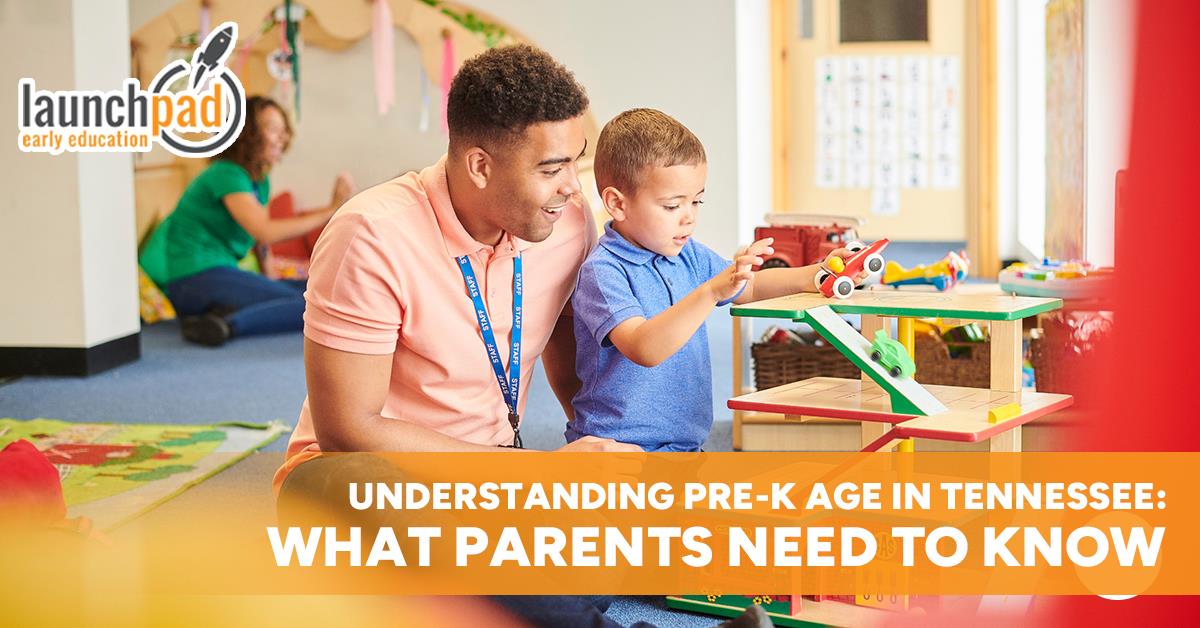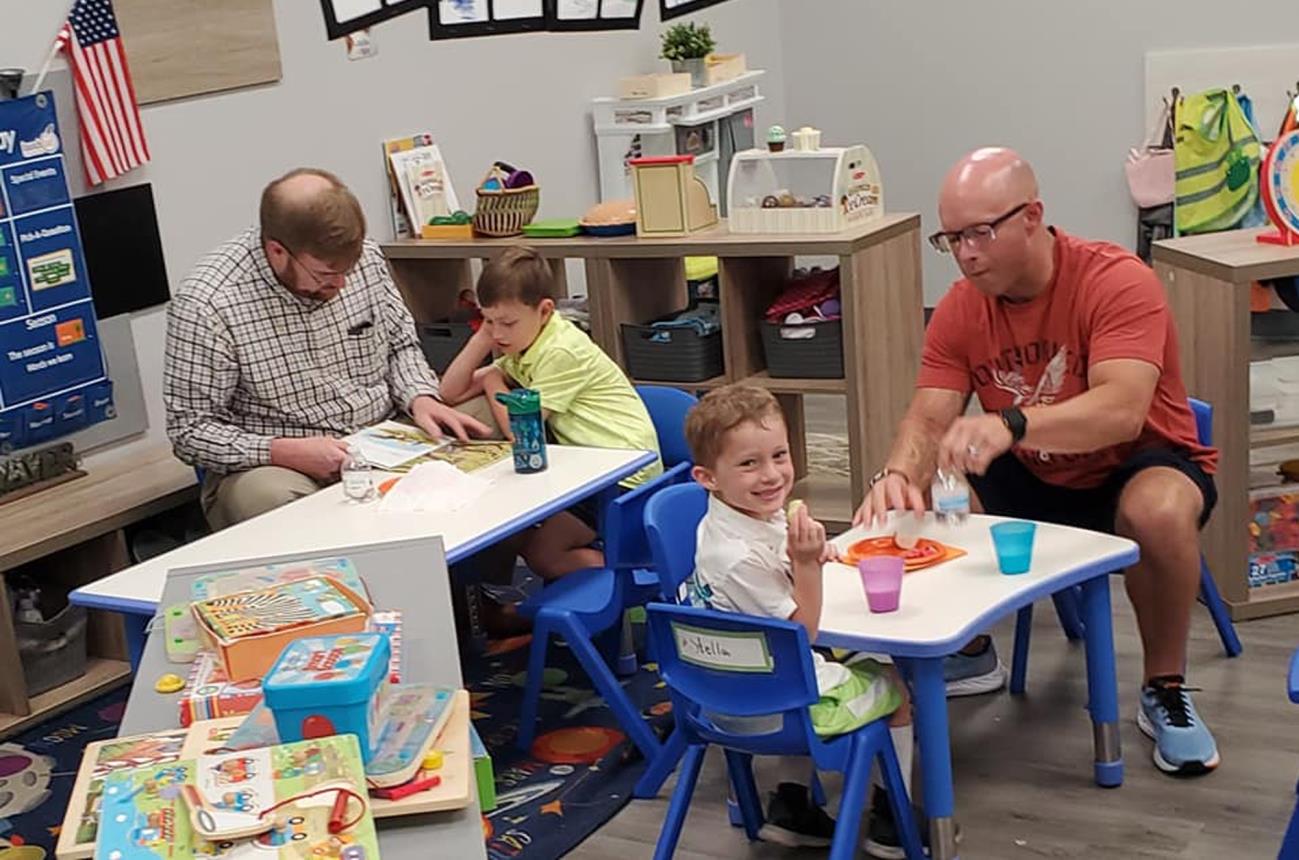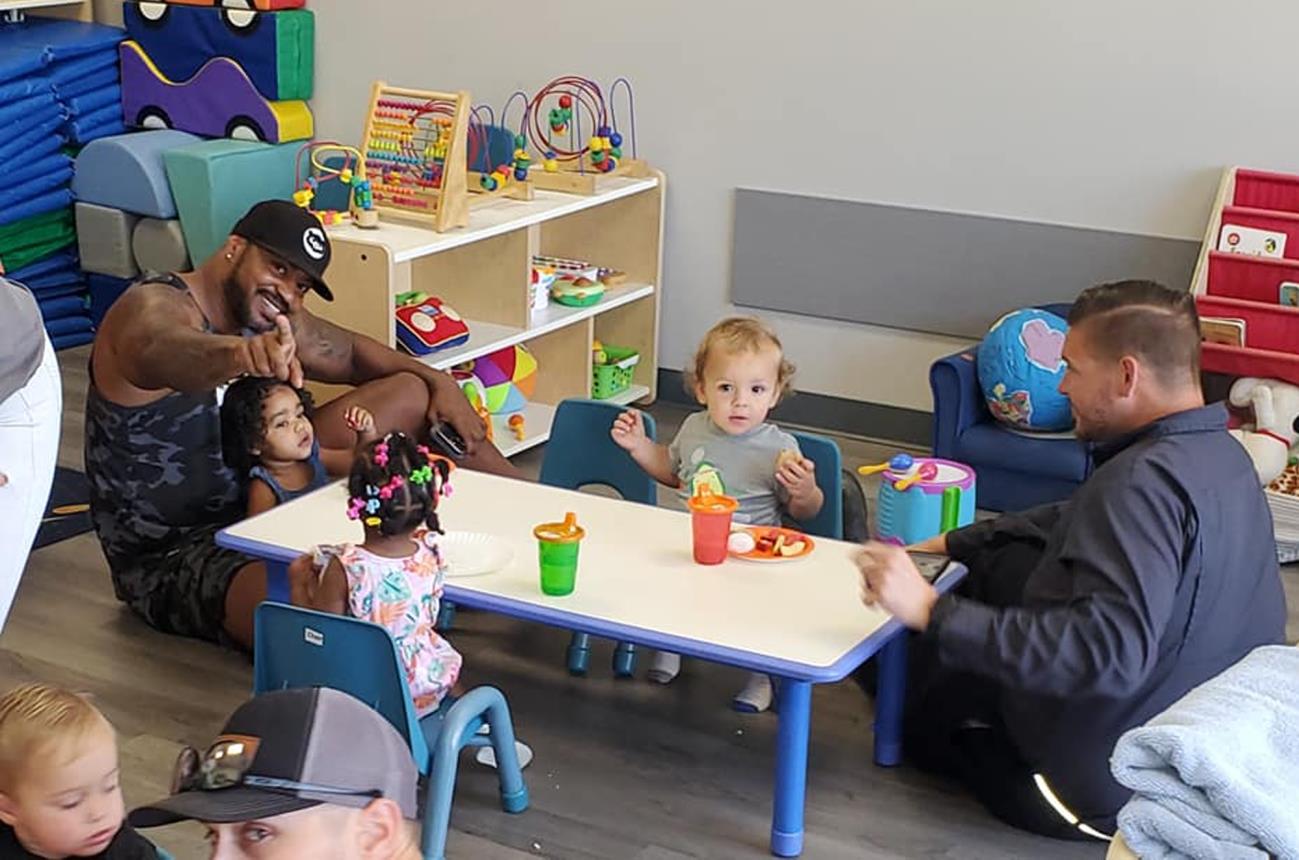Understanding pre-k age in Tennessee is crucial for parents preparing their children for early education. Pre-k, typically around four years old, marks a critical cognitive, social, and emotional development period. It’s a time when children begin to explore the world more independently and build foundational skills that will support their future academic success.
In Tennessee, pre-k programs are designed to provide a nurturing and educational environment, aligning with state guidelines to ensure every child is prepared for kindergarten and beyond.
The Importance of Pre-K Age in Tennessee
Understanding the significance of pre-k age in Tennessee is essential for parents seeking to provide their children with a solid educational foundation. At LaunchPad Early Education, we focus on nurturing children during these crucial years, ensuring they are prepared for the academic journey ahead.
Developmental Milestones for Pre-K Children
Children at the pre-k age, typically around four years old, reach several critical developmental milestones that set the stage for future learning and personal growth. These milestones include:
- Cognitive Development: Pre-k children think more logically and can understand simple cause-and-effect relationships. They start to recognize letters, numbers, and shapes and can follow multi-step instructions.
- Social and Emotional Development: At this age, children learn to interact with their companions, share, and take turns. They also develop a sense of independence and self-confidence, which is vital for their overall well-being.
- Language Skills: Vocabulary expands rapidly during the pre-k years. Children learn to form more complex sentences, engage in conversations, and indicate their thoughts and feelings more clearly.
- Physical Development: Fine and gross motor skills improve significantly. Children become more adept at tasks like drawing, cutting with scissors, and basic self-care routines like dressing and feeding themselves.
Benefits of Early Education
Enrolling children in a pre-k program offers numerous benefits that extend beyond the classroom. Early education lays a strong foundation for lifelong learning and development. Some of the key benefits include:
- Academic Readiness: Pre- programs prepare children for the structured learning environment of kindergarten. They introduce children to early literacy and math skills, fostering a love for learning.
- Social Skills: Being in a classroom setting helps children learn to cooperate with others, resolve conflicts, and develop friendships. These skills are crucial for their future social interactions.
- Emotional Regulation: Early education provides a safe space for children to explore emotions and learn coping strategies. Teachers guide them in managing their feelings and developing empathy.
- Increased Confidence: As children achieve new milestones and receive positive reinforcement, their self-esteem grows. They become more confident in their abilities and are more likely to take on new challenges.
Role of Pre-K in Preparing for Kindergarten
Pre-k is vital in ensuring children are ready for the transition to kindergarten. At LaunchPad Early Education, our programs are designed to align with state guidelines and provide a comprehensive learning experience. Here’s how pre-k prepares children for kindergarten:
- Structured Routine: Pre-k introduces children to a structured daily routine, helping them adapt to the schedule they will encounter in kindergarten. This includes designated times for learning, play, meals, and rest.
- Foundational Skills: Our curriculum focuses on building foundational skills in literacy, numeracy, and problem-solving. Children engage in activities that boost critical thinking and creativity.
- Social Interaction: Children learn to work in groups, follow classroom rules, and respect authority figures. These social skills are essential for a smooth transition to the more formal school setting.
- Parental Involvement: We encourage parents to be involved in their child’s education. Regular communication with teachers and participation in school activities help reinforce learning at home.
We understand the importance of the pre-k years and provide a nurturing, faith-based environment where children can thrive. By focusing on developmental milestones, the benefits of early education, and preparation for kindergarten, we ensure that every child is ready to embark on a successful academic journey.
Tennessee Pre-K Age Requirements
Understanding the Tennessee pre-k age requirements is essential for parents planning to enroll their children in early education programs. At LaunchPad Early Education, we strive to make this process as smooth and transparent as possible for our families.
Eligibility Criteria for Pre-K Enrollment
To enroll in a pre-k program in Tennessee, children must meet certain eligibility criteria to ensure they are ready for this important educational journey. Key eligibility criteria include:
- Age Requirements: Children must be four years old by August 15th of the school year they are enrolling in. This age requirement ensures that children are developmentally prepared for the pre-k curriculum.
- Residency: Families must provide proof of residency within the state of Tennessee. This includes a utility bill, lease agreement, or mortgage statement.
- Income Verification: Some pre-k programs may require families to provide income verification, especially if the program is designed to serve low-income households. This ensures the program can allocate resources to families needing them most.
- Immunization Records: Children must have up-to-date immunization records. This is a standard requirement to ensure the health and safety of all children in the program.
Age Cut-Off Dates
Tennessee has specific age cut-off dates to determine eligibility for pre-k enrollment. These dates are critical for ensuring that children are developmentally ready for the structured learning environment of pre-k. The primary age cut-off date to be aware of is:
- August 15th: Children must be four years old on or before August 15th of the school year they are entering. This cut-off date is in place to align with the state’s educational standards and ensure a cohesive learning experience for all children.
Understanding this cut-off date helps parents plan and make informed decisions about when to enroll their child in pre-k. It also ensures that children are grouped with peers of a similar age, facilitating age-appropriate learning and social interactions.
Required Documentation for Enrollment
Parents must provide several essential documents when enrolling a child in a pre-k program in Tennessee. These documents help verify the child’s eligibility and ensure compliance with state regulations. The required documentation typically includes:
- Proof of Age: A birth certificate or passport to verify the child’s age.
- Proof of Residency: Documents such as a utility bill, lease agreement, or mortgage statement to confirm residency within Tennessee.
- Immunization Records: Up-to-date immunization records to ensure the child’s health and safety.
- Income Verification (if applicable): Documents such as tax returns, pay stubs, or W-2 forms if the program requires income verification.
Parents can confidently navigate the enrollment process by understanding the Tennessee pre-k age requirements, eligibility criteria, age cut-off dates, and required documentation.
Navigating Pre-K Ages
Navigating the pre-k ages is crucial to ensuring your child’s early educational success. Hence, understanding the differences between pre-k and kindergarten helps parents better prepare their children for these pivotal stages. Key differences include:
- Curriculum Focus: Pre-k emphasizes foundational skills such as basic literacy, numeracy, and social skills. Kindergarten builds on these skills with more structured academic learning, including reading, writing, and math.
- Learning Environment: Pre-k classrooms are designed to be more flexible and play-based, encouraging exploration and creativity. Kindergarten classrooms introduce more structured activities and routines to prepare children for the academic rigors of school.
- Teacher-Child Interaction: In pre-k, teachers focus on nurturing and guiding children through hands-on activities and play. In kindergarten, teachers begin to emphasize instruction and independent learning, preparing children for the formal education system.
Age-Appropriate Learning Activities
Engaging children in age-appropriate learning activities is vital for their development. At LaunchPad Early Education, we incorporate a variety of activities that cater to the developmental needs of pre-k children:
- Creative Play: Activities such as drawing, painting, and building with blocks help improve fine motor skills and foster creativity.
- Story Time: Reading stories aloud promotes language development, listening skills, and a love for reading.
- Sensory Play: Playing with sand, water, or playdough stimulates the senses and enhances cognitive development.
- Outdoor Play: Physical activities like running, jumping, and climbing improve gross motor skills and overall physical health.
- Group Activities: Simple group games and activities teach children about cooperation, sharing, and teamwork.
These activities are designed to be fun and engaging, helping children develop essential skills while enjoying their learning experience.
Social and Emotional Development at Pre-K Age
Social and emotional development is a cornerstone of early childhood education. At the pre-k age, children begin to form their first significant social connections and develop critical emotional skills. Our approach at LaunchPad Early Education includes the following:
- Building Friendships: Children learn to make friends, share, and take turns, which are fundamental skills for social interaction.
- Emotional Expression: We encourage children to show their emotions in healthy ways, helping them understand and manage their feelings.
- Conflict Resolution: Teaching children simple conflict resolution strategies helps them navigate social challenges and fosters a sense of empathy.
- Self-Regulation: Activities that promote self-regulation, such as mindfulness exercises and calm-down techniques, equip children with tools to manage their behavior and emotions.
Our programs are designed to support the holistic development of each child, ensuring they are ready for the next step in their educational journey. By focusing on the differences between pre-k and kindergarten, providing age-appropriate learning activities, and nurturing social and emotional development, we create a solid foundation for lifelong learning and personal growth.
Preparing Your Child for Pre-K
Starting pre-k is a significant milestone for both children and parents. Here are some valuable tips to help prepare your child for pre-k, emphasizing our core values of compassion, integrity, and support.
Tips for a Smooth Transition
The transition to pre-k can be exciting yet challenging. Here are some tips to ensure a seamless experience:
- Visit the School: Take your child to visit the pre-k classroom and meet the teachers. Familiarity with the environment and faces can reduce anxiety.
- Talk About Pre-k: Discuss what they can expect in pre-k, from making new friends to participating in fun activities. Positive conversations can build excitement and curiosity.
- Read Books About School: Many children’s books about starting school can help your child comprehend what to expect and feel more comfortable.
- Practice Separation: Gradually practice short separations if your child is not used to being away from you. This helps them build confidence and trust.
Building a Routine
Establishing a routine is crucial for your child’s success in pre-k. A predictable routine provides security and helps children adjust to their new schedules. Here’s how you can build a routine:
- Morning Routine: Start the day with a morning routine that includes waking up at the same time, having a healthy breakfast, and getting dressed. This sets a positive tone for the day.
- Evening Routine: Establish a calming evening routine that includes activities such as bath time, reading a book, and going to bed at a regular time. Adequate sleep is vital for your child’s growth and readiness to learn.
- Practice School Activities: Incorporate activities like those in pre-k, such as story time, arts and crafts, and outdoor play. This helps them become accustomed to the types of activities they will encounter.
Encouraging Independence and Curiosity
Fostering independence and curiosity in your child is essential for their development and confidence in pre-k. Here’s how you can encourage these traits:
- Self-Help Skills: Teach your child basic self-help skills such as dressing themselves, using the restroom, and washing their hands. These skills boost their confidence and independence.
- Encourage Exploration: Provide chances for your child to explore their interests. Whether building with blocks, drawing, or playing outside, encouraging exploration fosters a love for learning.
- Ask Open-Ended Questions: Invite your child in conversations that stimulate their curiosity and critical thinking. Ask questions like, “What do you think will happen if…?” or “How do you feel about…?” to encourage thoughtful responses.
- Celebrate Achievements: Recognize and celebrate your child’s accomplishments, no matter how small. Positive reinforcement builds their self-esteem and motivates them to try new things.
Following these tips for a smooth transition, building a routine, and encouraging independence and curiosity can help your child embark on their pre-k journey with confidence and excitement.
Conclusion
Navigating the pre-k age in Tennessee can be a rewarding journey with the proper preparation and understanding. Recognizing the importance of these early years, meeting Tennessee’s pre-k age requirements, and preparing your child with thoughtful strategies set the stage for a lifetime of learning and growth. At LaunchPad Early Education, we provide a nurturing and supportive environment that aligns with our critical values of compassion, integrity, and support.
For more information about our programs and how we can support your child’s early education journey, visit our website or call us at (615) 809-2211. Let’s embark on this exciting journey together!







